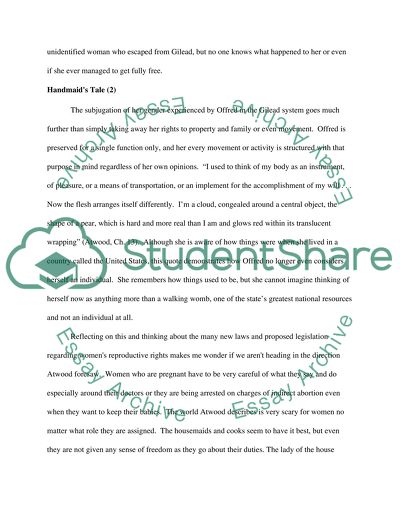Cite this document
(“Handmaid's Tale by Margaret Atwood Book Report/Review”, n.d.)
Retrieved from https://studentshare.org/literature/1421375-9-individual-1-page-journal-entries-no-title-required
Retrieved from https://studentshare.org/literature/1421375-9-individual-1-page-journal-entries-no-title-required
(Handmaid'S Tale by Margaret Atwood Book Report/Review)
https://studentshare.org/literature/1421375-9-individual-1-page-journal-entries-no-title-required.
https://studentshare.org/literature/1421375-9-individual-1-page-journal-entries-no-title-required.
“Handmaid'S Tale by Margaret Atwood Book Report/Review”, n.d. https://studentshare.org/literature/1421375-9-individual-1-page-journal-entries-no-title-required.


